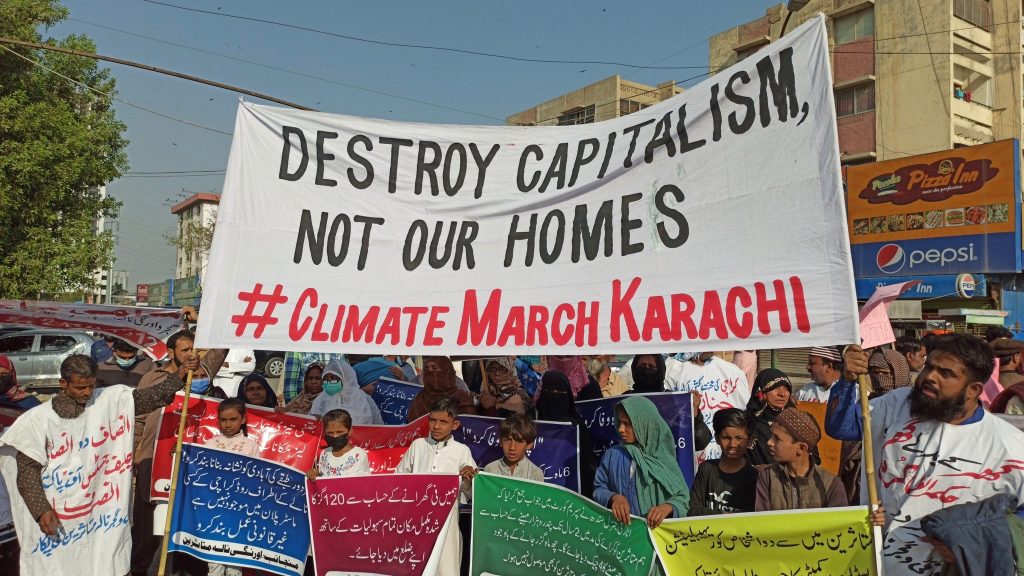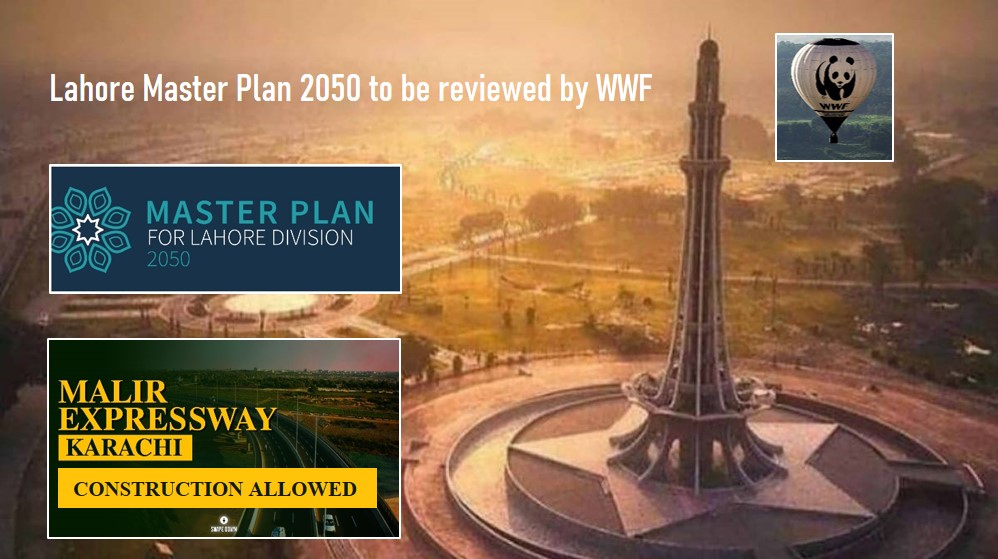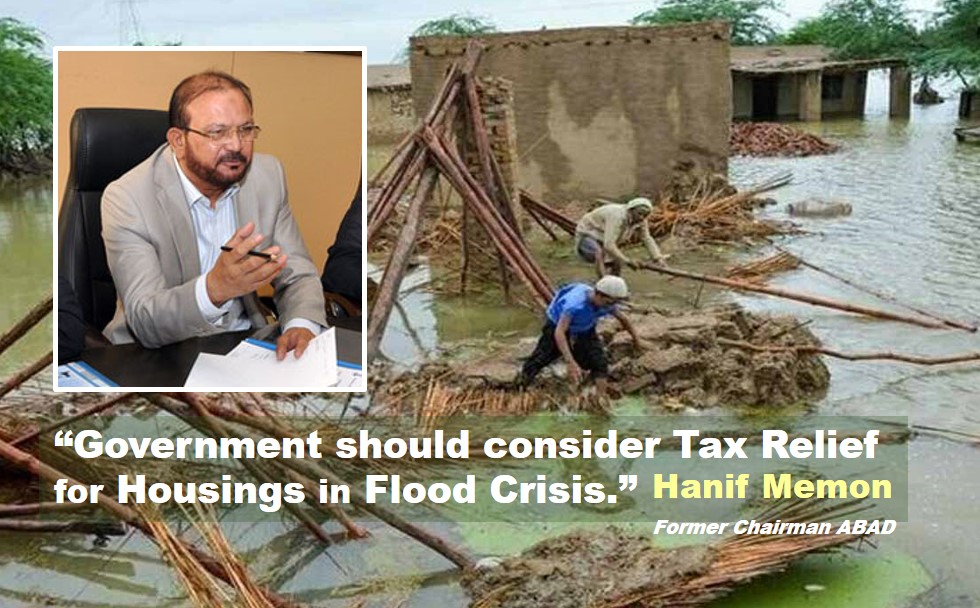23 July 2023
No Further Taxation on Real Estate
Before the National Assembly this week, Finance Minister Ishaq Dar while giving policy statement said the government neither has imposed new taxes on construction & real estate sectors and nor would do so in future as well in the wake of a $3 billion loan deal signed with the International Monetary Fund (IMF). The minister told a wave of concern has spread in agriculture and construction and real estate sectors on “incorrect reports” about IMF conditions suggesting new taxes on these sectors. “I want to make a categorical statement and make you (parliamentarians) a witness that no new tax will be imposed on agriculture, construction or real estate,” he said, adding that difficult times had already passed, all prior actions delivered and all fiscal measures envisaged in the budget had been taken.

It is important to mention that in the IMF program documents, including the letter of intent (LOI), Pakistan has assured IMF that the country had already “taken a series of important actions” including to “sustainably raise additional revenue by targeting undertaxed sectors (such as agriculture and construction)”. However, this was misread by some as upcoming taxes. As through Finance Act 2023, the taxes on buying and selling residential properties, plots, and houses have already been revised upwards. Non-filer buyers are now obligated to pay a 10.5% tax, compared to the previous rate of 7%, on property purchases. On the other hand, property sellers who are non-filers will have to pay a 6% tax, instead of the previous 4%. While the filers involved in property deals will now be subject to a 3.3% advance tax, a notable increase from the previous 2.2%, which applies to both buyers and sellers.
Climate March Karachi
The Climate March Karachi 2023 held this week with a large number of committed individuals, communities and organisations walking from Frere Hall to the Karachi Press Club amplified their message and bring attention to the urgent need for doing something for climate change and environmental preservation. The participants in the march tried to raise awareness and inspire action. It was particularly highlighted in the Climate March how the Indus River was dying. The plastic waste, sewage coupled with industrial waste and short-sighted construction on illegally reclaimed coastal areas have devastated the Indus Delta when in fact it should be declared a nature reserve with recognised rights for the indigenous communities. Displacement of communities and destruction to the environment due to coal mining were also mentioned. As participants criticized all over the world coal and fossil fuels are becoming history now. But we are after Thar coal in Pakistan, which is hurting the environment of the area while displacing the indigenous people and their animals there to make space for mining and the water reservoir needed for it.

The organizer of the March, climate activist Yasir Husain Darya said our municipalities and authorities are unable to save us from climate disasters such as floods, heavy rainfall, urban floods or heat. Pointing out at the government`s own development projects causing ecological destruction, he said “Capitalist gains based on greed have become synonymous with haphazard construction practices, which are harmful to our environment, our ecology and our people”. He reminded about Bahria Town which was built by displacing 45 goths and said “the same is the story with the DHA to DHA City corridor called the Malir Expressway, which has also thrown people on the roads. It has displaced women, children and small farmers,” he said, while mentioning that the Malir Expressway had no way of benefiting the people of Malir itself.
Construction Workers died in absence of Occupational Safety
Eleven construction workers were crushed to death this week when a portion of the outer wall of a sprawling military compound collapsed after being weakened by rains on the outskirts of Islamabad. The 11-foot-high wall fell while the labourers, working to build a nearby underpass, slept in their tents at the construction site killing 11 and 5 injured in the incident. The deaths are reportedly the result of negligence by the authorities, as safety and security protocols to protect the workers are largely ignored in most construction projects. Earlier this year, two workers were also died in another construction accident in the capital after a portion of the under-construction bridge collapsed. Both tragic incidents are the results of negligence towards occupational safety of workers.

According to news reports, construction companies engaged in various projects in Islamabad regularly flout labour laws, particularly those must to safety. Some engineers said that according to the contract, all construction companies are supposed to have insurance for all labourers. Similarly, safety gear including helmets, long shoes, gloves and reflected jackets, must be provided to the workers on site. In blatant violation of this agreement, workers are often seen working without proper gear, sometimes they are even working barefoot. More importantly, labourers are forced to live in unlivable conditions. Besides, an important position in any construction company is that of a safety officer even mandatory in mega projects. But most construction companies do not hire safety officers, in an apparent attempt to save money.
Housing’ Rights for Sindh’ Flood Victims
In the first phase of a project to give ownership rights of residential units to flood victims of Sindh, the Sindh government has distributed title deeds among 5,000 families whose houses had been damaged during the last year`s unprecedented rains and flooding. The deeds were awarded by the Foreign Minister and PPP chairman Bilawal Bhutto-Zardari this week. The PPP chairman said two million houses were to be built in the entire province, adding that though it would take time to complete the process, but that is the beginning of a revolution. Chief Minister Murad Ali Shah referring to the last year`s flood’ displacements said the plan has taken off from Larkana where 5,000 flood victims are being given the ownership rights and so far the government has completed the work on distributing titles of land among 1.5 million people.
It is pertinent to mention that Sindh was badly affected by the 2022 Pakistan floods. According to the Provincial Disaster Management Authority, more than a 1,000 people died and over 12 million – about a quarter of the province’s population of about 50 million – were affected. Nearly 1.5 million houses were destroyed, another 600,000 partially damaged, and around 1.5 million hectares of crops were damaged.
WWF- Pakistan calls to accelerate Climate Action
The World Wide Fund (WWF) for Nature Pakistan held a press conference titled “Accelerating Climate Action: Shaping Pakistan`s Future” at the Lahore Press Club this week. Aiming to underscore the urgent need for a robust climate change response from all stakeholders in Pakistan, the press conference was addressed by WWF Director General Hammad Nagi Khan, and WWF International President Dr Adil Najam. The event focused on Pakistan`s vulnerability to the impacts of climate change, exemplified by the catastrophic floods of 2002, which served as a stark reminder of the nation`s exposure to the climate crisis. The goal was to engage the media in a dynamic discussion on a nationally driven, globally significant climate change agenda to address the growing impact and risk of climate change in Pakistan.

Dr. Adil Najam said Pakistan has immense potential to lead the way in climate action, emphasizing the importance of collective efforts in turning challenges into solutions. He provided insights into WWF-Pakistan`s ongoing initiatives aimed at addressing the climate crisis and emphasized the significance of multi-stakeholders collaboration between government entities, civil society, and businesses in strengthening Pakistan`s resilience against extreme weather events. He further said that only through collaboration and the exchange of resources can Pakistan forge a path towards a greener and more sustainable future.



